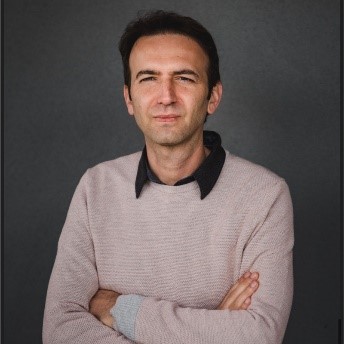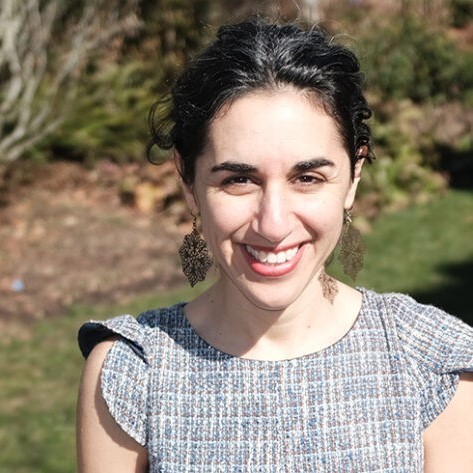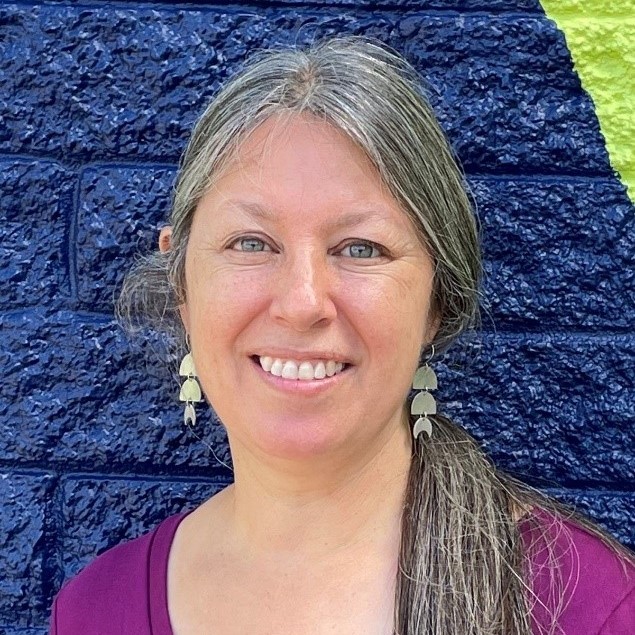Killam Accelerator Research Fellowship Public Lectures
-
Ali Mesbah, Electrical and Computer Engineering; Sara Milstein, Ancient Mediterranean and Near Eastern Studies; and Jeanine Rhemtulla, Forest and Conservations Sciences
Coach House, Green College, UBC
Thursday, May 4, 3-4:30pm with reception to followin the series
VP Research and Innovation Event -
Each year the Killam Accelerator Research Fellowships (KARF) are awarded to six exceptional early career researchers whose proposed research has the potential for significant impact in their field of study.
This is the first of two special evenings of lectures on how the inaugural cohort of KARF recipients, funded in 2020, have advanced their research and scholarship. Lectures cover a diverse range of areas: from biblical studies to software engineering; from molecular construction to computer vision; and from forest restoration to understanding the role of chronic inflammation in health conditions and aging.
To learn more about this lecture series, and to register, visit the event homepage.
This event has been organized and sponsored by the Office of Research Prizes and Awards, UBC.
 Ali Mesbah is a Professor in the Department of Electrical and Computer Engineering at UBC. His research focuses on solving some of the most pressing challenges in software engineering including automated error detection and repair. He has received numerous awards for his research achievements, including a Killam Accelerator Research Fellowship (2020), a Killam Faculty Research Prize (2019), an NSERC DAS and numerous Distinguished and Best Paper Awards. Dr. Mesbah is on the steering committee of the UBC Research Excellence Cluster on Trustworthy ML, is an Associate Editor of the IEEE Transactions on Software Engineering and serves on program committees of several flagship conferences in software engineering. His research achievements revolve around devising intelligent techniques for automatically detecting and fixing software errors through a combination of software analysis and machine learning using historical developer failures and their fixes.
Ali Mesbah is a Professor in the Department of Electrical and Computer Engineering at UBC. His research focuses on solving some of the most pressing challenges in software engineering including automated error detection and repair. He has received numerous awards for his research achievements, including a Killam Accelerator Research Fellowship (2020), a Killam Faculty Research Prize (2019), an NSERC DAS and numerous Distinguished and Best Paper Awards. Dr. Mesbah is on the steering committee of the UBC Research Excellence Cluster on Trustworthy ML, is an Associate Editor of the IEEE Transactions on Software Engineering and serves on program committees of several flagship conferences in software engineering. His research achievements revolve around devising intelligent techniques for automatically detecting and fixing software errors through a combination of software analysis and machine learning using historical developer failures and their fixes. Sara Milstein is an Associate Professor of Hebrew Bible and Ancient Near Eastern Studies in the Department of Ancient Mediterranean and Near Eastern Studies. She is the author of two award-winning books: Making a Case: The Practical Roots of Biblical Law (Oxford University Press, 2021); and Tracking the Master Scribe: Revision through Introduction in Biblical and Mesopotamian Literature (Oxford University Press, 2016). Dr. Milstein is the recipient of multiple fellowships from the American Council of Learned Societies and the Memorial Foundation of Jewish Culture, and in 2022, she was elected to the Göttingen Academy of Sciences. She is an international expert in biblical studies and Assyriology whose groundbreaking scholarship advances fresh theories regarding the growth and interpretation of biblical and Mesopotamian law and literature. Using the lens of history, cultural anthropology and literary criticism, she reads the Hebrew Bible (or Old Testament) in the original ancient Hebrew to shed light on what these texts actually say and might have meant to their ancient audiences. Her current research aims to expose the dangers of “biblical inerrancy,” the belief that because the Bible has divine origins, it is both infallible and applicable to the modern world.
Sara Milstein is an Associate Professor of Hebrew Bible and Ancient Near Eastern Studies in the Department of Ancient Mediterranean and Near Eastern Studies. She is the author of two award-winning books: Making a Case: The Practical Roots of Biblical Law (Oxford University Press, 2021); and Tracking the Master Scribe: Revision through Introduction in Biblical and Mesopotamian Literature (Oxford University Press, 2016). Dr. Milstein is the recipient of multiple fellowships from the American Council of Learned Societies and the Memorial Foundation of Jewish Culture, and in 2022, she was elected to the Göttingen Academy of Sciences. She is an international expert in biblical studies and Assyriology whose groundbreaking scholarship advances fresh theories regarding the growth and interpretation of biblical and Mesopotamian law and literature. Using the lens of history, cultural anthropology and literary criticism, she reads the Hebrew Bible (or Old Testament) in the original ancient Hebrew to shed light on what these texts actually say and might have meant to their ancient audiences. Her current research aims to expose the dangers of “biblical inerrancy,” the belief that because the Bible has divine origins, it is both infallible and applicable to the modern world. Jeanine Rhemtulla is an Associate Professor in the Department of Forest and Conservation Sciences. She directs the Landscapes and Livelihoods Lab, which focuses on how to manage and restore landscapes to increase biodiversity, ecosystem function and benefits to local communities. She has conducted interdisciplinary research on four continents in collaboration with wonderful graduate students, local communities, NGOs and government ministries. Her most recent work assesses how ambitious global restoration targets can achieve multiple ecological and social goals in a just and equitable way. Around the world, governments are making ambitious commitments to tree planting as a natural climate solution that also increases biodiversity and benefits to local communities, including through the Trillion Trees Initiative and the UN Decade on Ecosystem Restoration. But where will these trees be planted, who decides, and can these projects actually achieve all of the promised outcomes? Join Jeanine Rhemtulla to hear about national restoration initiatives around the world, their accomplishments and challenges, and how we can combine ecological and social approaches to design forest restoration projects that work for nature and people.
Jeanine Rhemtulla is an Associate Professor in the Department of Forest and Conservation Sciences. She directs the Landscapes and Livelihoods Lab, which focuses on how to manage and restore landscapes to increase biodiversity, ecosystem function and benefits to local communities. She has conducted interdisciplinary research on four continents in collaboration with wonderful graduate students, local communities, NGOs and government ministries. Her most recent work assesses how ambitious global restoration targets can achieve multiple ecological and social goals in a just and equitable way. Around the world, governments are making ambitious commitments to tree planting as a natural climate solution that also increases biodiversity and benefits to local communities, including through the Trillion Trees Initiative and the UN Decade on Ecosystem Restoration. But where will these trees be planted, who decides, and can these projects actually achieve all of the promised outcomes? Join Jeanine Rhemtulla to hear about national restoration initiatives around the world, their accomplishments and challenges, and how we can combine ecological and social approaches to design forest restoration projects that work for nature and people.
-
Unless otherwise noted, all of our lectures are free to attend and do not require registration.
Custom Lecture Fields
|